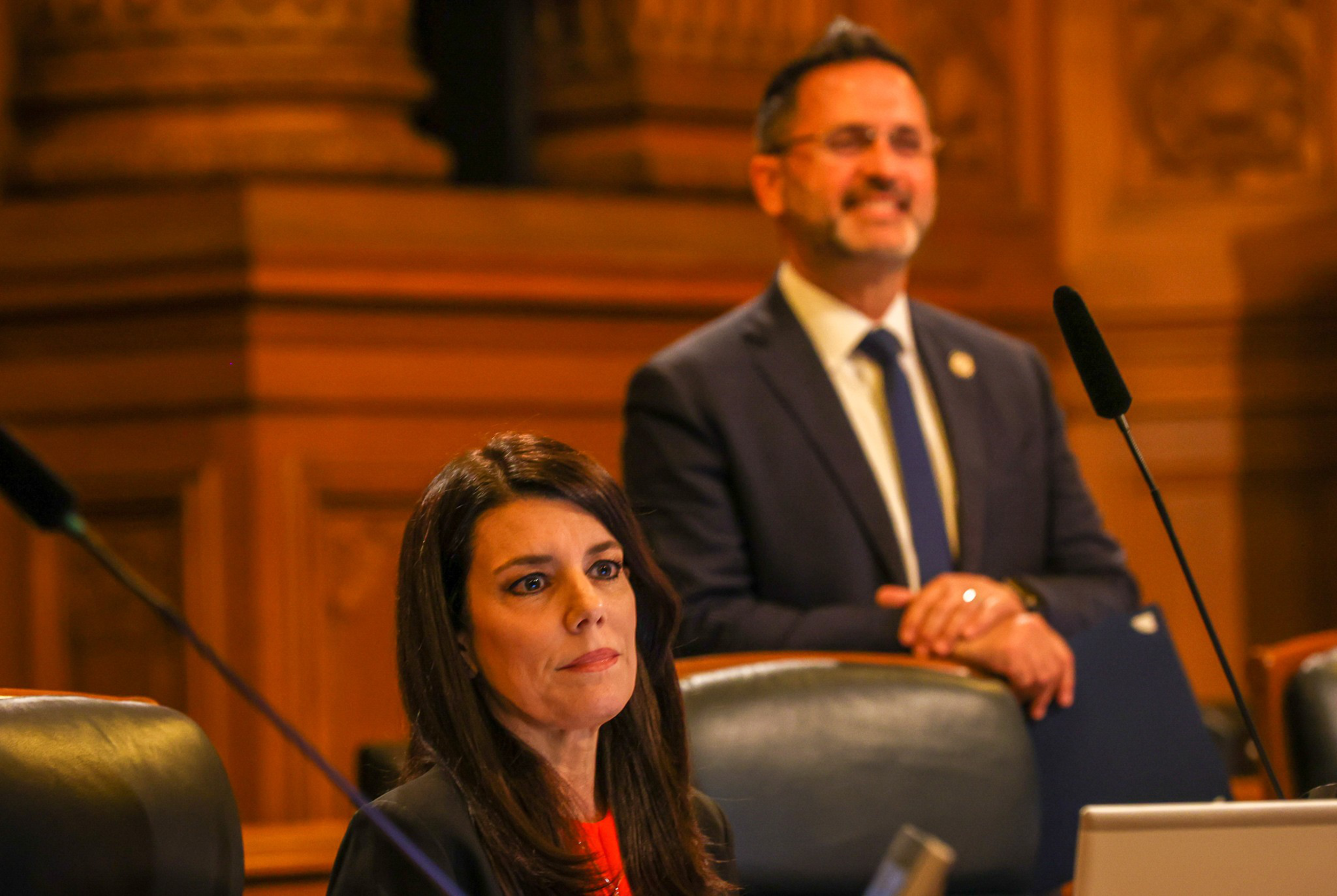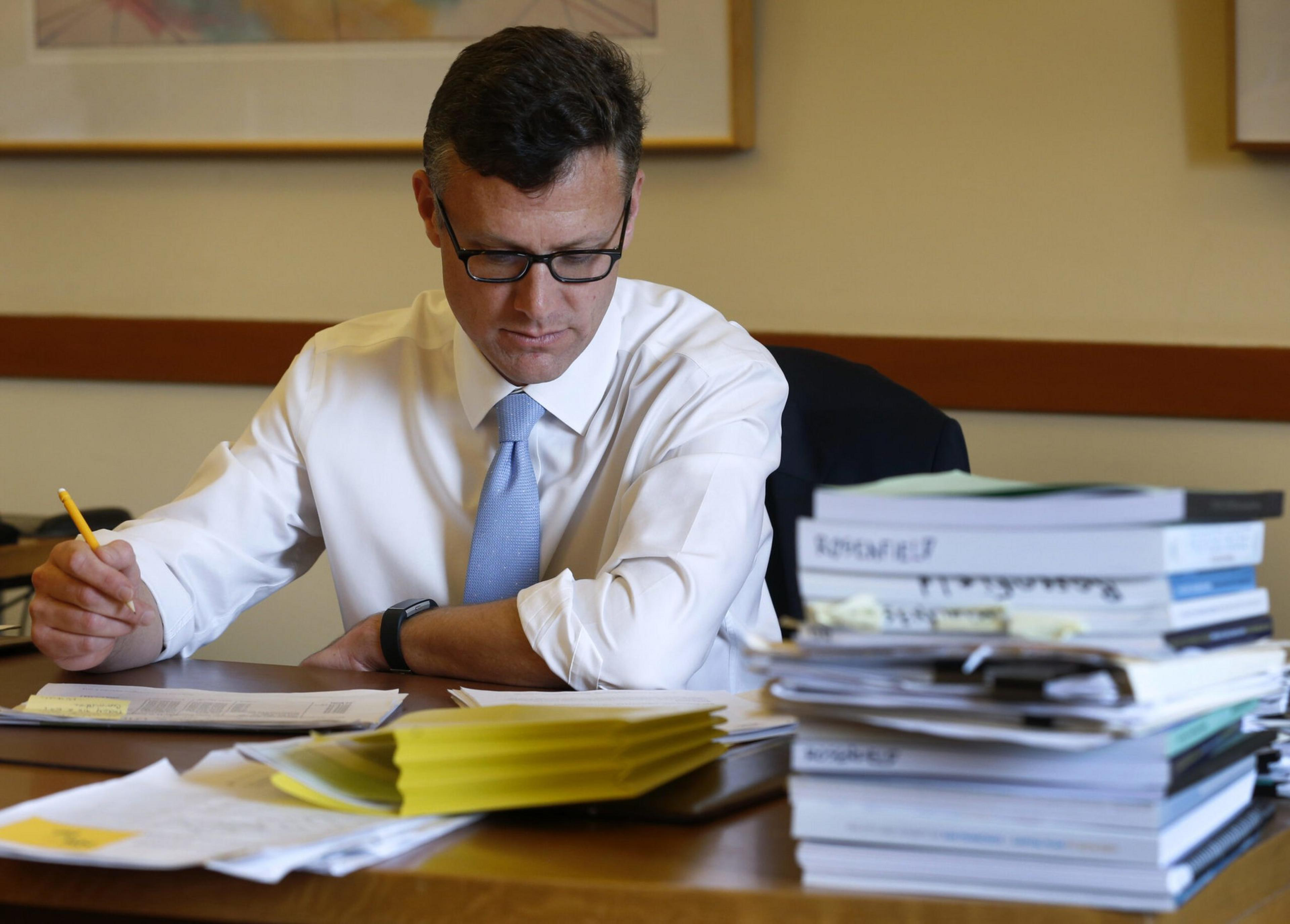San Francisco officials announced a new policy Tuesday that puts more than 100 nonprofits with roughly $300 million worth of city contracts at risk of being barred from doing business with the city unless they come into compliance with state regulations.
In January, The Standard reported that San Francisco doled out more than $25 million in taxpayer dollars last year to nonprofits that were blocked by state law from receiving or spending funds because they failed to maintain good standing with the California Attorney General Registry of Charitable Trusts.
As of December, the city had contracts for the current fiscal year with 139 nonprofits that were out of compliance with the state registry. Those nonprofits, which deal with issues ranging from homelessness and drug addiction to education and the arts, still had remaining contract balances totalling nearly $304 million.
The new policy (opens in new tab), issued jointly by the offices of the City Controller, City Attorney and City Administrator, explicitly states that San Francisco is not authorized to continue doing business with any nonprofits in delinquent, suspended or revoked status with the state registry.
The guidance lays out a pathway to help bring nonprofits into compliance, or risk losing their ability to receive contracts in the future. It also bars city departments from inking new agreements with any nonprofit in bad standing with the state.
Supervisor Ahsha Safaí, who announced legislation to address the oversight of city-funded nonprofits following The Standard’s first report, issued a statement Tuesday saying more accountability is needed in managing taxpayer money. Last year, the city had nonprofit contracts totaling $1.4 billion.
“We must ensure compliance with all federal and state laws before one cent of public funding is spent,” Safaí said. “Implementing the recommendations of this report is an important first step to address the prior lack of oversight and accountability on City contracts and spending.”

Supervisor Catherine Stefani, who will be holding a Feb. 16 hearing to review the guidance issued Tuesday along with other audits from the City Controller’s Office, said in a statement that the new policy “is a step in the right direction to ensure that nonprofits are in compliance with existing rules and to legitimize the city’s oversight over these contracts.”
Nonprofits in California are required to annually renew their registration. Those that fail to do so will lose their “good standing” and enter delinquent status, according to the state Attorney General’s Office. Organizations that fail to renew after one delinquent year are suspended. If another year passes without the issues being resolved, the organization’s nonprofit status is revoked.
The new policy places the harshest scrutiny on suspended and revoked nonprofits. The Standard’s reporting identified five nonprofits whose status was revoked and two more that were suspended as of December; those nonprofits had pending contracts worth more than $645,000.
The policy gives departments 30 days to determine a transition plan for those nonprofits, which may include terminating their services immediately. The departments also have the option to transfer the services to another city nonprofit supplier or work with the suspended or revoked nonprofit to develop an action plan for them to return to good standing before the June 30 deadline.
When the city enters into a contract with a nonprofit, the funds are not issued all at once. Instead, the city issues “purchase orders” throughout the lifetime of the contract that commit payments in exchange for specific services.
Until June 30, the city can continue to pay a suspended or revoked organization funds from existing purchase orders that are already in process, according to the new guidance. But until the revoked and suspended nonprofits have established current or probationary status with the state, departments can’t issue new purchase orders.
The vast majority of San Francisco’s contractors that fell out of good standing with the state have been classified as delinquent. These nonprofits, which totalled 132 as of last December, now have until June 30 to fix their status with the state registry. Until they do, they will not be able to enter into any new contracts with the city, though departments are still authorized to issue purchase orders under existing agreements to the delinquent organizations.
Some of the delinquent organizations’ bad standing dates back years. The Attorney General’s Office placed 30 city-funded nonprofits under this status before the end of 2020.
No agency in the city had more pending contracts with nonprofits that were not in good standing than the Department of Homelessness and Supportive Housing (HSH). Its contracts totaled more than $87 million as of last December.

“HSH has received and reviewed the policy and will be working with our nonprofit partners to be sure that they are all in good standing and that we move forward in compliance with this policy,” said Emily Cohen, a spokesperson for the agency.
In the future, the new policy requires departments to actually confirm that nonprofits are in good standing with the state registry.
The state Attorney General’s Office has indicated to city officials that it will work with nonprofits trying to comply with legal requirements, according to the policy. State officials have declined to comment on whether the Attorney General’s Office would pursue civil or criminal penalties against any of the nonprofits identified by The Standard’s investigation.
Last year, the Attorney General’s Office filed a lawsuit (opens in new tab) against a Riverside County charity for a wide range of mismanagement violations, including soliciting donations while the nonprofit was not in good standing with the Registry of Charitable Trusts and the IRS.
